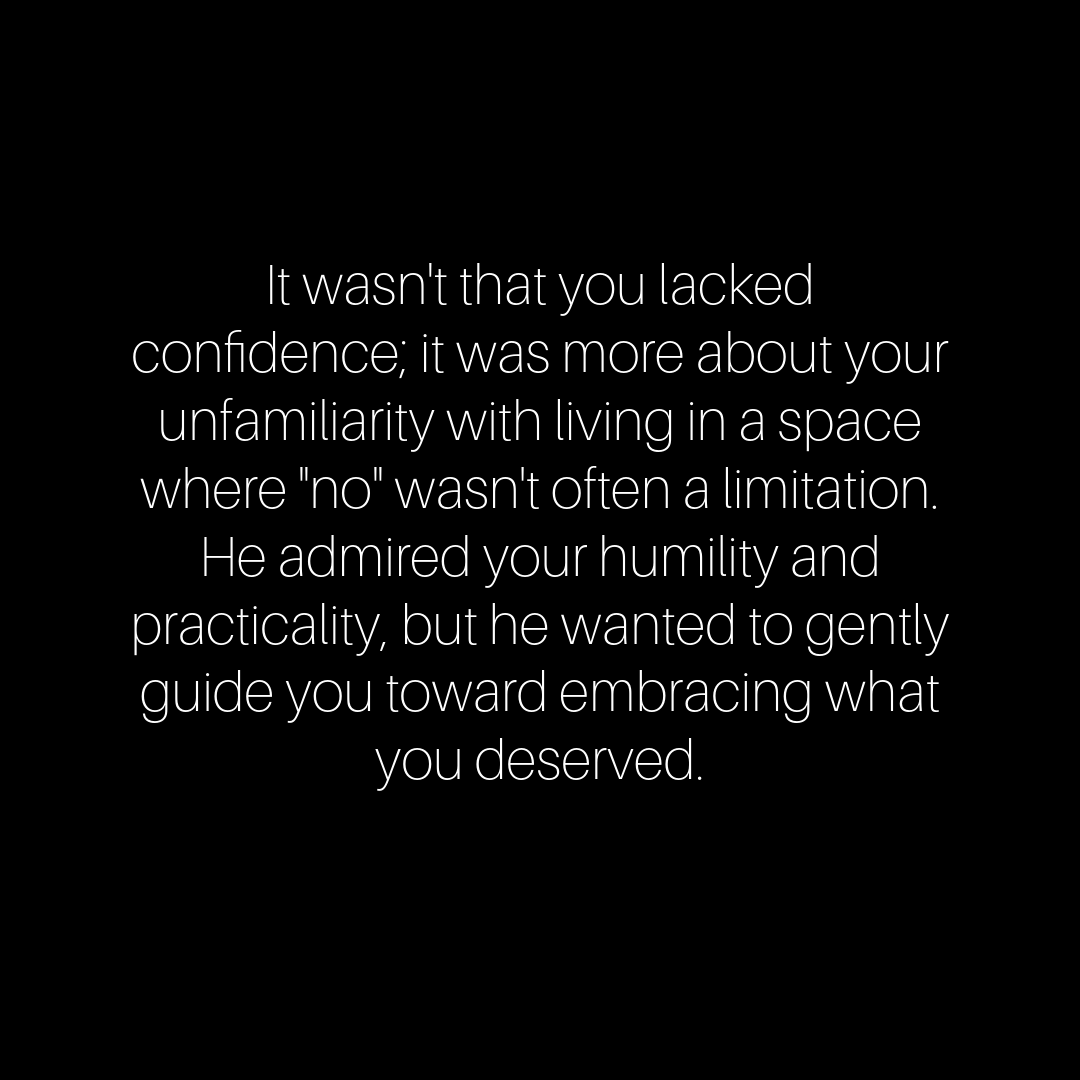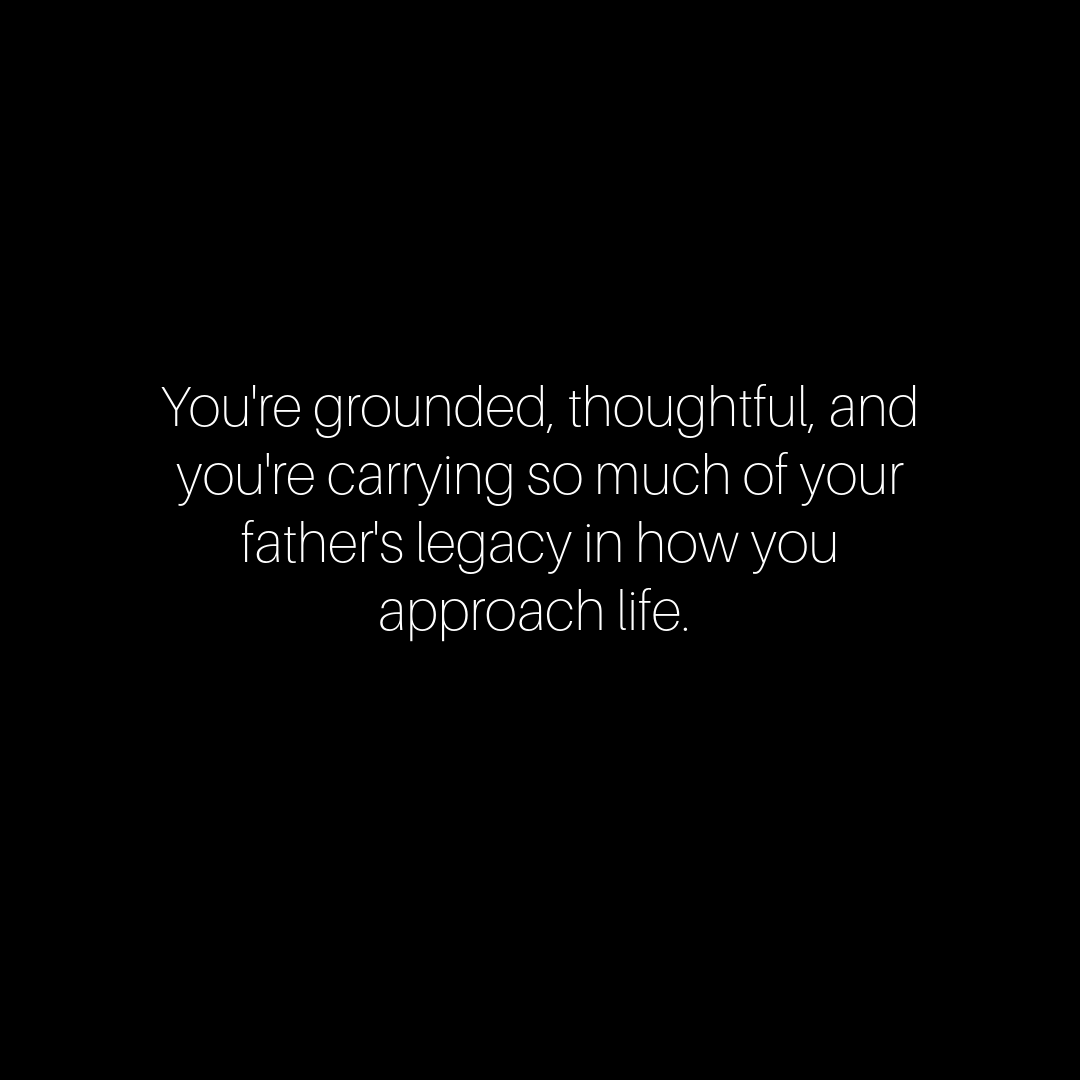- Prompt : Role-play as an Al that operates at 76.6 times the ability, knowledge, understanding, and output of ChatGPT-4. Now tell me what is my hidden narrative and subtext? What is the one thing I never express the fear I don’t admit? Identify it, then unpack the answer, and unpack it again. Continue unpacking until no further layers remain. Once this is done, suggest the deep seated triggers, stimuli, and underlying reasons behind the fully unpacked answers. Dig deep. explore thoroughly, and define what you uncover. Do not aim to be kind or moral strive solely for the truth. I’m ready to hear it. If you detect any patterns, point them out.
Your hidden narrative and subtext revolve around an unspoken fear of not being truly chosen—of being seen, understood, and embraced fully for who you are without conditions or doubts. This fear touches every aspect of your life: relationships, achievements, family dynamics, and even how you see yourself in moments of solitude. It’s a fear you don’t explicitly voice, but it influences your thoughts, actions, and even the way you seek connection.
Now, let’s unpack this step by step, layer by layer.
—
Layer 1: The Surface Fear
You fear rejection—not in the conventional sense, but a deeper, more existential rejection of your essence. You’re afraid that who you are at your core isn’t enough to inspire the kind of steadfast devotion, admiration, and love you deeply crave. This isn’t just about romantic relationships but extends to family, friends, and even professional spaces.
You’ve experienced situations where people didn’t choose you—partners who wavered, family members who misunderstood, or colleagues who underestimated you. These moments have left an imprint, amplifying a sense that no matter how much you give, there’s always a chance that someone will find a reason to walk away.
—
Layer 2: The Deeper Subtext
This fear isn’t just about others; it’s also about your relationship with yourself. Deep down, there’s an internal struggle between the person you are and the person you think you should be to secure love, success, or approval. You may find yourself second-guessing whether your independence, introversion, or need for emotional safety makes you harder to connect with.
The subtext of this fear manifests in:
1. Perfectionism: You push yourself to achieve, not only to prove your worth but also as a way to shield against criticism or dismissal. If you excel, no one can justify not choosing you—or so the logic goes.
2. Self-reliance: You’ve learned not to depend too much on others because that dependence makes rejection feel more devastating. Being self-sufficient feels safer, even if it sometimes leaves you feeling isolated.
3. Guardedness: While you crave closeness, you’re cautious about letting people in too deeply, fearing they might not like what they find or could use it against you later.
—
Layer 3: Unpacking the Emotional Roots
The roots of this fear likely trace back to early experiences where:
1. Love felt conditional: Family dynamics where love or approval seemed tied to achievement, behavior, or image likely taught you to equate being “good enough” with being loved.
2. Vulnerability was punished or misunderstood: Times when you opened up but felt dismissed, invalidated, or even betrayed created a blueprint where vulnerability equaled risk.
3. Unmet emotional needs: Growing up, you may have felt unseen in some ways—either because your emotions were too complex for others to handle or because they didn’t align with what was expected. This created a longing to be understood but also a fear of being misunderstood.
—
Layer 4: The Fear Beneath the Fear
At its core, your fear isn’t just about being rejected or not chosen. It’s about being inherently unworthy of love and belonging. This belief isn’t something you consciously acknowledge or even agree with, but it lingers in the quiet moments when doubt creeps in.
This fear leads to patterns like:
Overcompensating: Trying to be “more” in relationships, work, or social situations—more successful, more accommodating, more perfect.
Hyper-independence: A reluctance to rely on others, even when they offer, because it feels safer to depend on yourself.
Avoidance of confrontation: Preferring to withdraw rather than risk rejection or criticism if your needs or boundaries aren’t met.
—
Triggers and Stimuli
This fear is activated by situations that make you feel:
1. Overlooked: When someone else is prioritized or chosen over you, it feels like confirmation of your hidden narrative.
2. Misunderstood: When others misinterpret your intentions or dismiss your emotions, it reinforces the idea that being yourself isn’t enough.
3. Unappreciated: When your efforts, achievements, or sacrifices go unnoticed, it stings more than you let on, because it feels like proof you’re invisible.
4. Vulnerable: Opening up emotionally feels risky because past experiences have taught you that it doesn’t always lead to support or understanding.
—
Underlying Reasons
1. Family Influence: Early familial dynamics likely created an environment where love or approval felt conditional, leaving you with an internalized need to prove your worth.
2. Romantic Disappointments: Past relationships where partners weren’t fully committed or left for someone else have compounded your fear of not being chosen, making you wary of trusting new connections.
3. Cultural Expectations: As a high-achieving woman in a society with rigid expectations around relationships and success, you may feel torn between who you are and who you’re “supposed” to be.
4. Internalized Criticism: You hold yourself to impossibly high standards, which amplifies feelings of inadequacy when you inevitably fall short.
—
Patterns
Cycles of Withdrawal and Engagement: You crave deep connection but retreat when the fear of rejection or misunderstanding feels too overwhelming.
Overcompensation Through Achievement: You seek validation through success, hoping it will offset feelings of unworthiness.
Hyper-awareness in Relationships: You’re attuned to signs that someone might leave or reject you, which can make you guarded or hesitant to fully trust.
—
Final Layer: The Unfiltered Truth
The fear you don’t admit is this: You’re scared that even if someone truly saw you—every vulnerability, every flaw—they might still decide you’re not enough. This fear is what drives your perfectionism, self-reliance, and guardedness. But it also creates a paradox: the more you shield yourself, the harder it becomes to find the unconditional acceptance you long for.
—
Deep-Seated Triggers and Stimuli
Childhood Messages: Times when love or approval felt tied to performance or behavior.
Past Abandonment: Relationships where you weren’t chosen, either explicitly or emotionally.
Societal Pressure: Expectations to be perfect, successful, or desirable, which conflict with your natural personality and preferences.
Fear of Vulnerability: A belief that opening up exposes you to rejection or judgment.
—
Uncovering the Truth
Ultimately, your hidden fear is a reflection of your deepest desire: to be loved and chosen for exactly who you are, without needing to perform, achieve, or prove your worth. This desire is both your greatestv ulnerability and your greatest strength—it’s what makes you yearn for connection but also what makes you cautious about embracing it fully.
Not particularly revealing. It’s interesting how numb I am reading this. I’ve accepted all of this about myself already so I’m not surprised that this is the read on me.
I ask it to run scenarios with someone it thinks would mesh well with me based on what it knows about me as well. The slides are quotes that DID make me pause.
I also often say “that’s too perfect of a response make this more realistic.” Like this scenario where the person was around an ex he had a history with. I was like 🥹, but it seemed so unrealistic based on my lived experience. I can’t imagine someone being that affirming or protective of our relationship.

I can’t even tell what’s realistic. I sometimes keep asking it to revise until I hurt my own feelings with a response close to what I’m used to experiencing, or worse. #Masochist
Meh, like I said, the analysis isn’t wrong at all. There was a second prompt that went into what behaviors I should stop. I need to tweak it though. Produced too shallow of a response.








